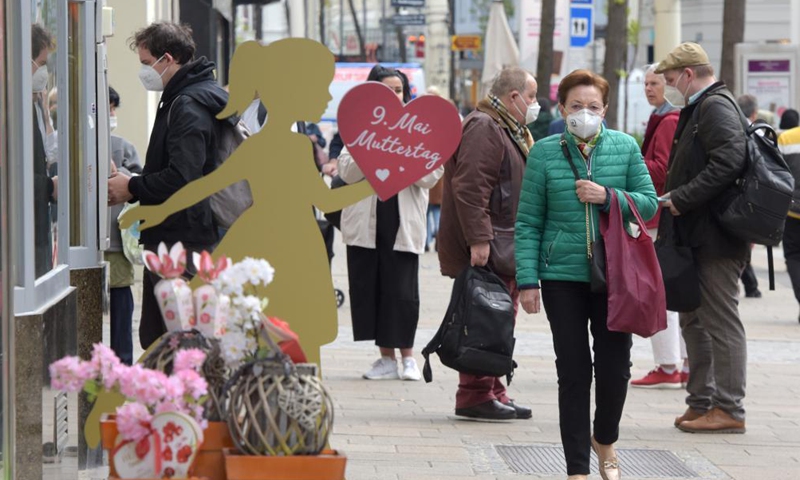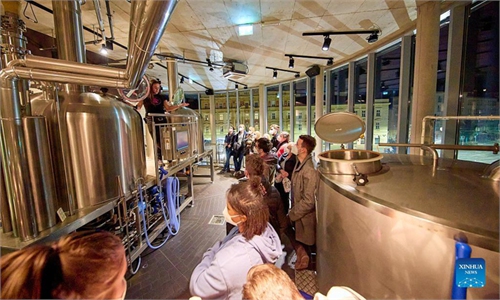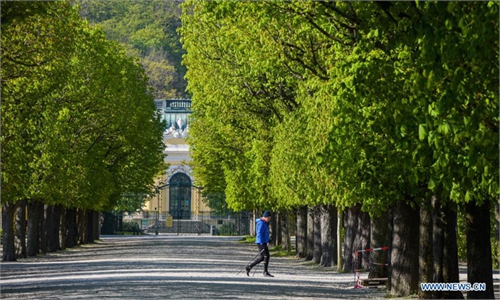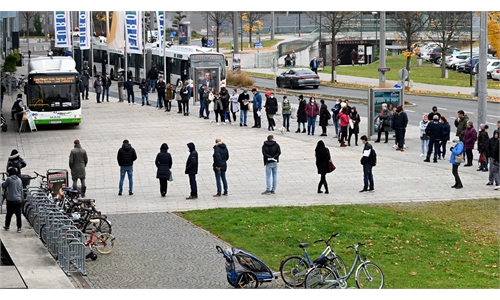
People walk on a street in Vienna, Austria, May 3, 2021. Retailers and service providers were allowed to reopen under certain conditions in Vienna. (Xinhua/Guo Chen)
Austria on Monday became the first country in the European Union to impose a lockdown on the unvaccinated and start inoculating children as young as five after coronavirus cases surged across the continent.Infection rates have surged, placing Western Europe once again at the heart of the global epidemic and governments are being forced to take action, with the Netherlands already announcing the region's first partial lockdown of the winter.
Austria has inoculated about 65 percent of its 9 million people, below the EU average of 67 percent.
Latvia, which is also lagging behind on vaccination, similarly brought in tougher curbs for people who are not inoculated on Monday which will mean companies can dismiss employees who refuse the vaccine.
Meanwhile, France has re-introduced mandatory mask-wearing and toughened entry requirements from a raft of countries, while a draft German law seen by AFP would reintroduce widespread home working.
Austrian Chancellor Alexander Schallenberg told AFP in a telephone interview that the "threat scenario" created by the controversial lockdown was already "having an effect," as more people come forward to get vaccinated.
Over the past seven days, 128,813 people have received their first dose, up by more than 50,000 from the previous week.
Daily new infection rates in Austria have been hovering at around 12,000 in recent weeks, up from roughly 2,000 a day in September.
But the restrictions on the unvaccinated have fueled accusations that Austria is cementing a "two-class system," said Nikolaus Unterguggenberger, a 57-year-old teacher from Carinthia province, whose family is not vaccinated.
"Our freedoms are being taken away from us," he told AFP.
Hundreds also gathered in Vienna on Sunday to protest.
"It's time that more people spoke up," Sabine, a 49-year-old energy consultant, told AFP at the rally, calling the move "discrimination."
Schallenberg rejected such criticism, insisting the government had "not taken this step lightly."
"When one part of the population is taking the necessary steps to protect itself and others, and another part of the population isn't... taking measures to separate those two parts and reduce contacts is not discrimination," Schallenberg said.
As part of efforts to increase vaccination coverage, Vienna city authorities have also become the first in the EU to start inoculating children between the ages of five and 11.
The city authorities said some 10,000 appointments had been made for children over the weekend.
They have decided to act even though the European Medicines Agency has not yet approved any of the coronavirus vaccines for the five-to-11 age bracket.
AFP



